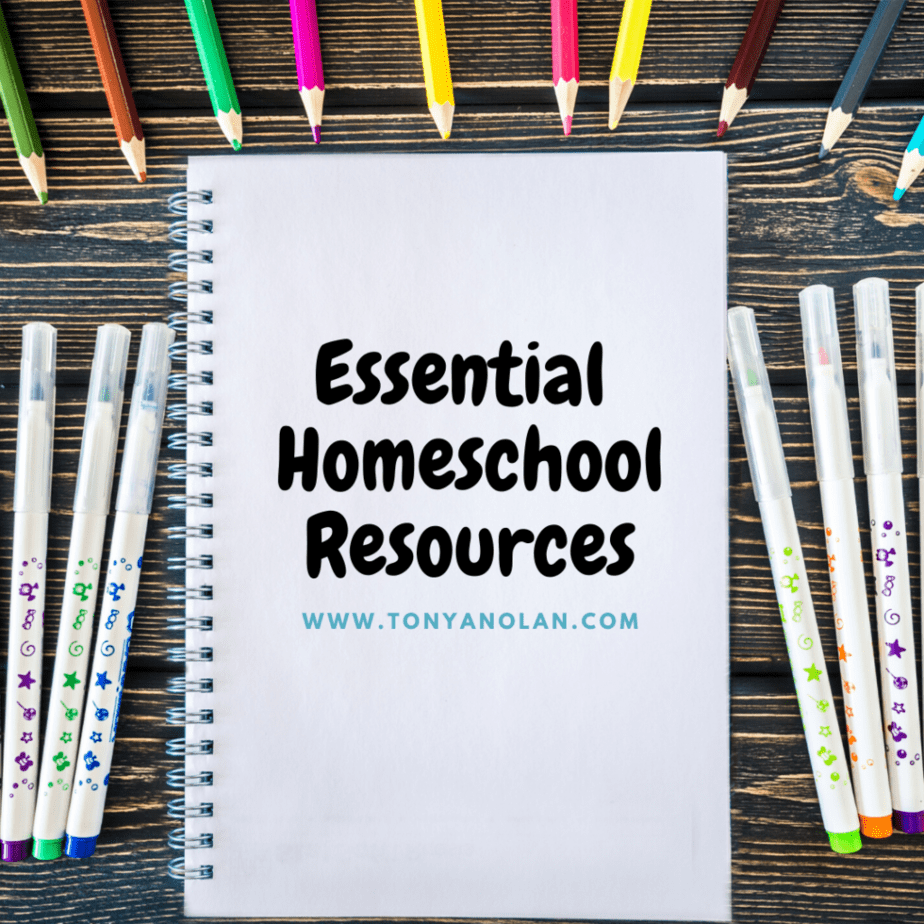
What are the Essential Homeschool Resources?
When you decide to homeschool your child, the first thing you need to think about is
resources. But just what do you need, as opposed to all those beautiful nice to have
books and supplies out there? Here are what we consider the essential homeschool
resources.
Google Homeschool Resources
If you go ahead and type homeschool resources into any search engine you will be
totally overwhelmed by the number of results. As homeschooling has grown, so have
the number of people trying to sell you something ‘essential’ for your homeschool. In
reality, there are very few supplies that you really need, especially when you first
start homeschooling.
What Method Will You Use?
First, you will need to decide how to homeschool your child and there are many
different philosophies and methods out there. Check out my post on the different types of homeschool methods. Once you have decided this you may
wish to choose a read-made curriculum. The exact nature of this will depend on the
way you want to teach your child, what you want them to learn, your child’s interests
and learning style, and possibly your religious or moral beliefs.
Whether you choose a bought curriculum or want to devise your own, the flexibility of
homeschooling means you can be more creative in the learning opportunities you
provide. So you may want to include an annual pass to your local museum or art
gallery in your resources. You will certainly need library cards for both you and your
child.
If you prefer a book-based style of learning there are plenty of textbooks that are
directed toward homeschoolers. You can also pick up lots of older textbooks and
learning resources very cheaply on selling sites such as eBay or online bookstores.
Think Outside the Box
Don’t forget your local thrift stores or your library too.
Whatever your child is learning about there will be many places to find resources
online. Many organizations, charities, youth organizations, and interest groups offer
free resources for children learning at home. Just search on the subject you are
teaching, and you will find plenty of instant resources. These are often free too.
Worksheets Don’t Grow Dendrites*
Worksheets Don’t Grow Dendrites is one of my favorite sayings. I learned this from Dr. Marsha Tate when I was getting my teaching certificate. I have all of her books on how to effectively teach without using worksheets. It is wise to avoid too many worksheets and textbooks as this type of dry
learning is not very interesting nor does it cover the breadth of learning you may
want for your child. Getting out into your local community to shop, visit, talk and help
is invaluable. Seize the opportunities open to you with plays, art exhibitions, gardens,
museums, etc as this kind of learning will have many benefits for your child.
Homeschool with Nature

Nature is a bounteous source of materials and learning experiences, so spend as
much time outdoors as you can and embrace the opportunities right there in the
natural environment. A nature journal, magnifying glass, and a bug catcher are
essential for making the most of outdoor learning opportunities.
The typical “school supply” list will suffice and add to this a good supply of markers, colored pencils, and plenty of paints and art supplies. Visual aids such as mats and
posters in the homeschool environment can also be very useful. But you do not need
to buy lots of supplies until you need them for specific investigations or lessons, so
keep your budget small until you actually need to spend more.